Smashed special: The Dark Art of Restaurant PR (part 2)
How restaurant PR influences your dining choices
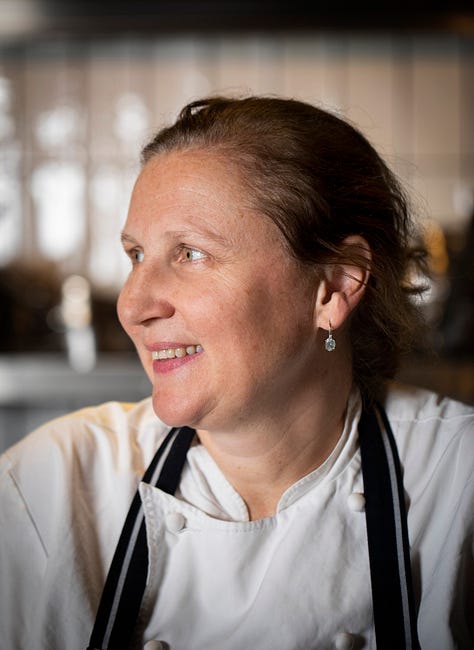
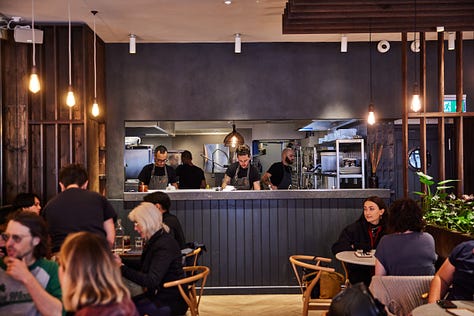
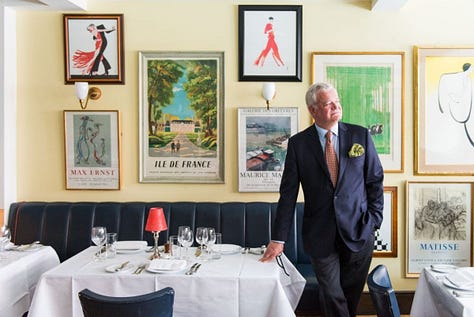
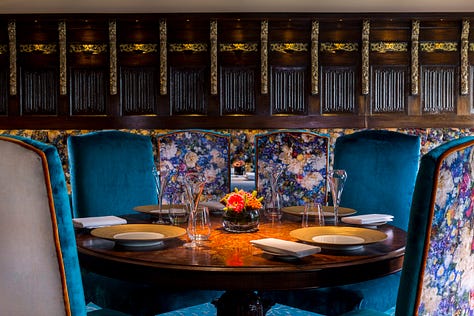
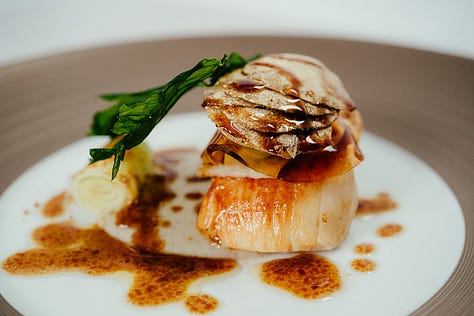
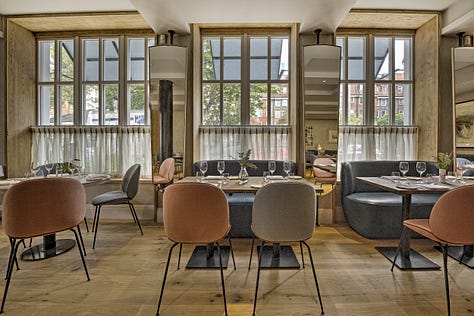
Part one of this three-part Smashed special on restaurant PR in the UK covered the early years of the industry, how our interviewees got into the business, how they deal with restaurant critics and influencers and how they draw up their client lists (click here to read it in full). Part two will reveal the wider role and influence restaurant PR has on the industry, our interviewee’s career highs and lows and considers if restaurant PR can survive the cost of living crisis. But before we begin, here’s a reminder of our interview panel:
Jo Barnes, Sauce Communications (co-founded with Nicky Hancock)
Current client list includes Moor Hall, D&D London and BenaresGemma Bell, Gemma Bell and Company
Current client list includes Angela Hartnett, St. John, Dishoom and Fortnum and MasonHélène Cuff, Cuff Communications (co-founded with Jess Harms)
Current client list includes Orwells, Le Champignon Sauvage and Chris Harrod at The WhitebookMaureen Mills, Network London
Current client list includes Elystan Street, Native and Delamina TownhouseHugh Richard Wright, Restaurant Public Relations & Communications Consultant
Current client list includes Cafe Britaly, Bellamy’s and Koba
Restaurant guides have been in a period of transition for the last few years, often moving from print to online in order to compete with the plethora of opinion on sites like TripAdvisor and posted daily by content creators. However, they remain an established and authorative voice and are still targeted by restaurant PRs who would like to see their clients in Michelin, The Good Food Guide and Harden’s Guide.
Maureen Mills: I have endless talks with Peter Harden about his business because I know Peter really well. I'm very close to Elizabeth Carter and Chloe Hamilton at The Good Food Guide. Michelin is the holy grail for a lot of my chefs and a lot of people with whom I've worked and continue to work with, but it's a changing beast as well.
My point of contact at Michelin is Jonathan Renel, he's almost like a deputy to the guide editor Rebecca Burr. I make sure that he and Rebecca get whatever I need to send out. I encourage select chefs on my client list to occasionally also write to them privately, usually whenever there's a major menu change or some news. I don't write their copy but I do see it. I always get a response from Jonathan but nobody has influence over them to be honest, as you can tell by the results that come out every year. They're a mystery sometimes, but I try to understand the direction they're in but sometimes it's all over the place.
Hugh Richard Wright: You can contribute to a client being in the guides. There are general email addresses that you can send your information to Michelin and you can recommend somewhere for inclusion in the guide. The Good Food Guide have a very good research team. You can absolutely place your client in front of them, whether they then review and rate them is down to them. So it’s about getting their reputation, getting their name out there and hope that they'll be noticed.
Simialrly, print media may no longer be the force it once was (a subject further discussed below) it too remains a target for restaurant PRs.
Gemma Bell: There are some papers that really want to capture the zeitgeist. They really want what's new, what's the trend, something that's going to excite everyone. Another paper might be really interested in the person and want to delve a bit deeper into their story and who they are and why they cook the way that they cook. So for us it's really about being very strategic and targeted, delving into what the story is, and is it right for that writer, editor and publication. Just throwing a story out there and seeing who's going to grab it doesn't end up with results.
‘People forget that the PR is relations, and it is about having a relationship with not just the critics but the editors; often where gets reviewed is an editorial decision’
Hugh Richard Wright
Hugh Richard Wright: People forget that the PR is relations, and it is about having a relationship with not just the critics but the editors; often where gets reviewed is an editorial decision. It's about timing your press release right so they get it in sufficient time that they can put it into their planning and scheduling.
It's making that restaurant sound appealing. The press release is not just a list of facts and figures, it's your sales pitch. PR is storytelling. Your communications need to tell a story and make it stand out because even in a quiet period, there are multiple restaurants opening every week around the country, and it's about making yours stand out in someone's incredibly busy inbox. What is going to make their ears prick up and their tummy rumble about maybe the 15th restaurant opening they've read about that week?
Part of that does come from your personal relationships. If a critic has got five press releases about new openings, are they going to look first and perhaps most favorably at the one that comes from a PR who they know or are they going to look at the one that comes from someone they've never heard of or possibly from the restaurants itself that doesn't make it sound particularly exciting and appealing? If you've built up a relationship with them and built up some trust and they see a press release, probably they are more inclined to say, okay, I'll earmark that one for reviewing.
While restaurant PRs can encourage reviewers and journalist to take notice of their clients, they can’t always influence what’s written about them. So what happens when a restaurant get’s a bad review?
Jo Barnes: There's nothing more painful as a PR when you read a lacerating review of your client and then trying to think of a way that you can position it that makes it slightly less bad. But sometimes it's just commiserating. It's making that difficult phone call and letting them know that you are with them, trying to put it into context and be constructive and talk them down from doing anything silly like trying to retaliate, a very common reaction.
Gemma Bell: Sometimes you have to say, well do you know what? Maybe you've got a little bit of work to do on that area that the critic called you up on. Let's have a look at that. Or it might be they were never going to like it because it's in the wrong building on the wrong street in the wrong side of town. That's just really unfortunate. It's not their style of restaurant, it's really bloody annoying that they reviewed it.
It's not good for any restaurant to get a bad review because it's not good for their morale. They work so hard. If it's an independent and they’ve remortgaged their house and they've put all their money behind it, that's really tough. But I think critics often feel like the big hotel restaurants or the big money restaurants are easy targets; they can just go for it and no one cares. But there are still people that are working hard in the restaurant. There are still chefs in the kitchen and people on the floor that are pouring their guts out. There are some critics that, if they don't like the restaurant, they won't review it, which means that then lots of restaurants miss out. But bad reviews don’t happen that often.
Jo Barnes: The steak restaurant Le Relais de Venise was our first taste of a restaurant being absolutely panned by critics and yet it being a tremendous success. Every critic to a man reviewed it and they all hated it to the point where the Standard ran a full page story asking is this the worst reviewed restaurant ever. And yet there were queues out the door. Sometimes universally bad reviews don't touch a place.
Sometmes, the problem can start even before a journalist or critic has walked through the door with some faulty decision making at the beginning of the PR process.
Gemma Bell: Failures in the past have been taking on clients that in my gut I knew I shouldn't have taken on and then gone, ‘Oh shit, I shouldn't have done that. It's not as good as I said it was going to be. I knew that design was awful and now I'm in it.’ It's awful. I actually launched a couple of hotels that I was just like, ‘Oh gosh, what have I done? This is terrible. We need to back away.’ But I don't think I've had any failures where I've launched somewhere and it's been a failure. We're very picky about who we work with, probably more now so than ever because I've made mistakes in the past.
Hugh Richard Wright: I had a client two or three years after I started that sounded absolutely great and had a well-known name behind it. I was excited to work with them. It was beautifully designed and promised a lot, but they didn't have a clue about running a restaurant. They just had absolutely no clue. It was, I wouldn't say a vanity project, but it was someone with a lot of money who decided that they wanted to open a restaurant and then opened a restaurant and very quickly got bored of it and just shut it.
I don't cook the food, I don't serve the food, I don't open and close the premises so it's not my failure, but my least successful ones have been ones where I've maybe taken a chance on someone. I've not been absolutely certain that it was going to be fantastic. Now I've learned to trust my gut. If I don't like the people and I don't like the food, I don't touch it.
When restaurant PR is a success however, it’s not just about getting the latest London opening a five star review.
Hugh Richard Wright: Everyone wants to write about the hot new places. Getting people to write about restaurants that have been around a while always feels like a great achievement . You know that you you can find the story, you can find the talking points in these very established places. When I started working with Koba and Linda Lee, the restaurant had recently turned 10. Next year I'll be doing pitches around its 20th anniversary. Bellamy’s, who I started working with five years ago around the time of their 15th birthday are turning 20 this year. I have got and am able to get press interested in 10-year-old, 15-year-old, 20-year-old restaurants.
Gemma Bell: What I’m really pleased about is that I've got so many clients that are really long-term clients that I've worked with for 10, 11 years. I'm also really proud that I've got a team that I've coached and trained and promoted and now they're senior level and been with me for quite a while.
Look below the line at the comments on restaurants reviews and articles and you’ll find the same reader complaint again and again - the piece is too London-centric. So how difficult is it for PRs to get coverage for clients based outside of London?
Gemma Bell: It goes back to being really strategic and really focused. In London, there are more websites and there are more lists, which clients love for SEO - ‘most romantic’, ‘best terrace’, ‘best for late night’ or whatever - so it means that you can get probably more smaller mentions in London. But actually you can get just as good if not better, beautiful bigger pieces on restaurants outside of London. You absolutely can.
Maureen Mills: In terms of the critics, Jay Rayner, for example, has to do more than half of his reviews outside of London. I guess all the national critics have to, even Giles, but he tends to do Oxfordshire or London. You have to figure out where your clients sit in the eyes of the critics. For example, one of my relatively new clients is Native, which was in Mayfair but has moved to out of London. It's so remote, on the borders of Herefordshire, Shropshire and Worcestershire. I was talking to Giles about it, email chatting because we have a healthy email relationship, and he said the practicality of that place doesn't work for me because of where it is. I have responsibilities in London. It would take me two and a half hours on the train and I'm responsible for the school run. Everybody loves the idea of Native but it's the practicality of going there, so that's the challenge of out of London.
Hélène Cuff: It's more difficult because there's no denying that the hub of the UK food scene is in London. A lot of the press influencers are still fairly London-centric. Essentially the press have to be constantly writing about what's new and the new food movements and chefs outside of London are always next on the list in the media. Therefore you've got all these other restaurants outside London that are really good that are just not getting the attention that they should.
We are just constantly drip feeding, just constantly securing some pieces of coverage here and there, doing social thing, digital upping the marketing, just doing that whole mix so there's a constant flow. Having a mass deluge of coverage is great, but then as we all know, you just go onto the next restaurant, the press and influencers never come back.
At The Whitebrook, chef Chris Harrod got a green Michelin star this year. We worked with the local primary school to get year three coming over so Chris could show them all the edible foods in his kitchen garden, about responsible foraging and getting them to eat in the restaurant and the local press covered it. Chris has been established for well over a decade, but we're keeping things relevant by doing things like that.
‘Critics are much more price sensitive now. I think they really have to be quite aware of their expenses, they can't go mad. So that's why a lot of these massively expensive places just don’t really get the critical attention.’ - Jo Barnes
But with in a rapidly changing media landscape, just how important is print media to restaurant PRs and their clients, or has online taken over?
Jo Barnes: It’s much diminished, editorial budgets have shrunk. Critics are much more price sensitive now. I think they really have to be quite aware of their expenses, they can't go mad. So that's why a lot of these massively expensive places just don’t really get the critical attention. There are few launches that happen these days where all the critics are going to go and you know they are just going to love it, like Claude Bosi’s Joséphine. I think critics long for that kind of restaurant where a really brilliant chef is cooking much more humble food that's really close to their heart and that means something to them. You just know that that's going to get them all there in a way that when he opened Brooklands he didn't get anything like the reviews, not least because it's so expensive.
But then it's grown in other ways because there's the enormous online world, the world of the influencer and the power of social media. It's huge. But at heart, I'm still an old-fashioned editorial girl. There’s nothing more thrilling than when your client's in print, makes it onto the cover, the masthead of a newspaper, that kind of thing. That's a thrill for me.
Maureen Mills: The whole media marketplace has changed so dramatically in the last five-plus years. When I first started it was just print, maybe a little bit of radio or television depending on the seniority of the chef, the annual restaurant guides and the trade press, and that was it. My database then was maybe 50- 75, now it's about 400 contatcs that are interested in food, drinks, lifestyle and travel with the breadth of the online stuff and obviously the influencers as well.
Hugh Richard Wright: TikTok is absolutely not to be underestimated. I know of businesses having absolutely incredible results from it. The challenge with TikTok and also the beauty of it is the things that go viral on TikTok are very hard to predict. It's not just about having the most beautiful content or the glossiest images or the biggest celebrity. Things on TikTok can go viral which are unexpected, a bit random.
Increasingly, a lot of people are using TikTok for search rather as they might use Google. They will search something in TikTok and see what people are posting and saying about it. If you’re a business, even if you're not on TikTok yourselves, it's good to have people posting on TikTok about you. If people search for my client Cafe Britaly for example, they're going to get some lovely content of Italians tasting carbonara and cream. There are already TikTok specialists. AUXO, which is a marketing agency with social purpose, does a really good newsletter with TikTok tips for businesses. But even then it's like, there are no hard and fast rules. It’s very hard to advise people what to do other than fuck about and find out.
Not every chef wants to be the next Gordon Ramsay and not every restaurateur wants or needs to be reviewed by Giles Coren. So what do they want for their money?
Gemma Bell: Ten years ago I would say there was quite a desire to be on telly, to be on the front cover of a magazine. Now, a lot of our clients aren't like that. Some of the smaller restaurants we work with, they just want to be busy. They just want to make sure that they can pay their bills, that they're covering all their costs, that they can pay their team really well and look after people and be successful. If that means them being interviewed by a journalist or doing a little bit of a video on Instagram or maybe being on TV, then they'll be like, okay, then I'll do it.
Hugh Richard Wright: When I first meet a client, expectations are really important. I always ask what are the publications you want to be in? What are the websites that you read? What are your aspirations? What would a successful launch campaign or relaunch campaign or whatever it is I'm doing, what would that look like for you? I also have to set expectations with people because I am a team of one. I do not have the time or the resource to be chasing every possible press opportunity, but I will get them in the ones that are best for them and that are going to have the most benefit for them. It’s quality over quantity.
You will absolutely have clients who will say, well, we want to have a 10 out of 10 review from Gil Coren, or we want to be on TV. And if those expectations are realistic relative to the quality of their offering, great, I'll absolutely strive to deliver it. But what most people want is bums on seats.
‘I offer consultancy to all of our clients. We are the eyes and the ears of the industry to our clients and they ask our opinions the whole time.’ - Gemma Bell
Restaurant PR is no longer not just about getting restaurants and chefs media coverage. Over time, the role has evolved to embrace many aspects of a restaurant’s business.
Gemma Bell: As an agency, we offer so much more now because we are just realizing that clients want so much more and there is so much more opportunity out there. We've got our PR department, but now we do marketing and creative. We do all the content production and management for social media and newsletters, digital marketing and all that sort of thing as well as partnerships with brands.
I offer consultancy to all of our clients. We are the eyes and the ears of the industry to our clients and they ask our opinions the whole time. We have big meetings where we discuss what new direction do they need to take. We offer consultancy in quite a structured way too to help restaurants take them to the next level or help a theater find a new restaurant partner, or helping one of the big stores look at their F&B program and how could it be improved.
Jo Barnes: Sauce now employs 38 people and we've got our little sister companies as well. Sauce Talent, our talent management company is run by Martine Carter and she looks after food and drink characters like Sabrina Ghayour and Ben Tish and does all their fee-paying media work. We also have Sauce Intelligence, a mystery dining and mystery guests platform which we run with Giovanna Grossi and Amanda Afiya. Hot Sauce are approaching PR in a really different way, very talent first. They're looking after really exciting names in food like chef Rachel Stephanie.
Although specific figures weren’t discussed with the panel, there’s no question that PR can be an expensive business. In the current adverse ecomnomic climate, with hospitality profit margins stretched to their limits, you might imaging that PR would be first in the firing line when businesses are looking at ways to reduce overheads.
Hugh Richard Wright: It's not one of the first things to go when people can see a return on their investment. I'm always about adding value. If I turn down a project, which happens very often, the reason I'll often give sincerely is I don't think I am best placed to add value. Someone else might be better at it, or you might be better off with an actual agency. Sometimes it's just because I don't want to do it. I think the place sounds awful. If clients can see that you're adding value, then they'll continue spending money on you. It's when you cease to add value that they start to get twitchy.
Gemma Bell: Sometimes if restaurants are feeling slow or they really need to cut their costs, then PR is the first thing to go, which often is detrimental because you need to be able to be busier. I often say to restaurants, ‘Look at PR as being another member of the team because we can really help.’ But sometimes you do need to stop it or pause it. And I get that.
‘The churn in restaurant PR is unbelievable. You can have 10 restaurants you're looking after and for various reasons overnight five of those can just be gone’ - Jo Barnes
Jo Barnes: COVID was a very brutal period for us as all people in hospitality. Over a six weeks period, we lost 80 percent of our revenue that we'd built up over 20 years. When times are tough, we definitely get squeezed, and that's one of the reasons over a decade ago we decided to get much more into other areas so we weren't completely reliant on hospitality and restaurants because the churn in restaurant PR is unbelievable. You can have 10 restaurants you're looking after and for various reasons overnight five of those can just be gone; either they haven't been able to continue trading or the marketing director's moved or the chef has had a wobbly or whatever. So we went into other things like food and drink and travel where there’s much less of that, but restaurants are still what I'm passionate about. I can't imagine not being passionate about the subjects that I have to talk to journalists about.
So what does it takes to be a good restaurant PR?
Maureen Mills: I'm honest about things with clients and with journalists and people I meet. I'm not full of PR bullshit. And I think that if I can pat myself in the back for anything, it's that I really do care about the industries that I work in and that I don't just do my job and do what the client says. I also would like to think that I'm, not authoritative, but knowledgeable about what's going on in the industry, often with my own opinions.
Hugh Richard Wright: I am naturally suited to PR because I'm an extremely positive person. With restaurants, when I like somewhere, I don't just say, ‘Go to Hide, it's really good. I'll say, ‘Oh, you've got to go to Hide. They do this amazing strawberry and cream croissant, it's absolutely beautiful and they get their crème fraîche from a little organic farm in Cornwall.’ I enthuse about places naturally.
PR’s not the hardest job in the world. It's not digging ditches in winter, but you can be having very late nights, you can be having early mornings. There can be days where you are out for lunch and dinner, then you might have a wine tasting of at a client’s in the afternoon. It takes it out of you with very pleasurable activities, but it does. And you can't be a shrinking violet. You can't be a PR and not like talking to people. You can't be a PR and not like speaking on the phone. It has a skillset. It has its immense benefits, but it's a real job. It's not just champagne and parties and sweetie darling.
Read The Dark Art of Restaurant PR (part 1) by clicking here. Part 3, How Restaurant PR Made Gordon Ramsay World Famous is available to paid subscribers here.




Essential reading. Targets, markets and the right channels for that hoped reshare (or 'passaparola' as they say over here in Italy). Building a relationship with customers takes time. Restaurant PR can open the right road.
Engrossing read and wonderful insights from Hugh, Gemma Jo and Maureen. Thanks for pulling it all together so readably